#China🇨🇳 | U.S. 🇺🇸
Explore tagged Tumblr posts
Text
Analysis: The China-Russia Axis Takes Shape
The bond has been decades in the making, but Russia’s war in Ukraine has tightened their embrace.
— September 11, 2023 | By Bonny Lin | Foreign Policy

Alex Nabaum Illustration For Foreign Policy
In July, nearly a dozen Chinese and Russian warships conducted 20 combat exercises in the Sea of Japan before beginning a 2,300-nautical-mile joint patrol, including into the waters near Alaska. These two operations, according to the Chinese defense ministry, “reflect the level of the strategic mutual trust” between the two countries and their militaries.
The increasingly close relationship between China and Russia has been decades in the making, but Russia’s invasion of Ukraine has tightened their embrace. Both countries made a clear strategic choice to prioritize relations with each other, given what they perceive as a common threat from the U.S.-led West. The deepening of bilateral ties is accompanied by a joint push for global realignment as the two countries use non-Western multilateral institutions—such as the BRICS forum and the Shanghai Cooperation Organisation (SCO)—to expand their influence in the developing world. Although neither Beijing nor Moscow currently has plans to establish a formal military alliance, major shocks, such as a Sino-U.S. conflict over Taiwan, could yet bring it about.
The cover of Foreign Policy's fall 2023 print magazine shows a jack made up of joined hands lifting up the world. Cover text reads: The Alliances That Matter Now: Multilateralism is at a dead end, but powerful blocs are getting things done."
China and Russia’s push for better relations began after the end of the Cold War. Moscow became frustrated with its loss of influence and status, and Beijing saw itself as the victim of Western sanctions after its forceful crackdown of the Tiananmen Square protests in 1989. In the 1990s and 2000s, the two countries upgraded relations, settled their disputed borders, and deepened their arms sales. Russia became the dominant supplier of advanced weapons to China.
When Xi Jinping assumed power in 2012, China was already Russia’s largest trading partner, and the two countries regularly engaged in military exercises. They advocated for each other in international forums; in parallel, they founded the SCO and BRICS grouping to deepen cooperation with neighbors and major developing countries.
When the two countries upgraded their relations again in 2019, the strategic drivers for much closer relations were already present. Russia’s annexation of Crimea in 2014 damaged its relations with the West and led to a first set of economic sanctions. Similarly, Washington identified Beijing as its most important long-term challenge, redirected military resources to the Pacific, and launched a trade war against Chinese companies. Moscow and Beijing were deeply suspicious of what they saw as Western support for the color revolutions in various countries and worried that they might be targets as well. Just as China refused to condemn Russian military actions in Chechnya, Georgia, Syria, and Ukraine, Russia fully backed Chinese positions on Taiwan, Hong Kong, Tibet, and Xinjiang. The Kremlin also demonstrated tacit support for Chinese territorial claims against its neighbors in the South China Sea and East China Sea.
Since launching its war in Ukraine, Russia has become China’s fastest-growing trading partner. Visiting Moscow in March, Xi declared that deepening ties to Russia was a “strategic choice” that China had made. Even the mutiny in June by Wagner Group leader Yevgeny Prigozhin that took his mercenary army almost to the gates of Moscow did not change China’s overall position toward Russia, though Beijing has embraced tactical adjustments to “de-risk” its dependency on Russian President Vladimir Putin.
Building on their strong relationship, Xi and Putin released a joint statement in February 2022 announcing a “No Limits” strategic partnership between the two countries. The statement expressed a litany of grievances against the United States, while Chinese state media hailed a “new era” of international relations not defined by Washington. Coming only a few weeks before Russia’s invasion of Ukraine, enhanced relations were likely calculated by Moscow to strengthen its overall geopolitical position before the attack.
It’s not clear how much prior detailed knowledge Xi had about Putin’s plans to launch a full-scale war, but their relationship endured the test. If anything, the Western response to Russia’s war reinforced China’s worst fears, further pushing it to align with Russia. Beijing viewed Russian security concerns about NATO expansion as legitimate and expected the West to address them as it sought a way to prevent or stop the war. Instead, the United States, the European Union, and their partners armed Ukraine and tried to paralyze Russia with unprecedented sanctions. Naturally, this has amplified concerns in Beijing that Washington and its allies could be similarly unaccommodating toward Chinese designs on Taiwan.
Against the background of increased mutual threat perceptions, both sides are boosting ties with like-minded countries. On one side, this includes a reenergized, expanded NATO and its growing linkages to the Indo-Pacific, as well as an invigoration of Washington’s bilateral, trilateral, and minilateral arrangements in Asia. Developed Western democracies—with the G-7 in the lead—are also exploring how their experience deterring and sanctioning Russia could be leveraged against China in potential future contingencies.
On the other side, Xi envisions the China-Russia partnership as the foundation for shaping “the global landscape and the future of humanity.” Both countries recognize that while the leading democracies are relatively united, many countries in the global south remain reluctant to align with either the West or China and Russia. In Xi and Putin’s view, winning support in the global south is key to pushing back against what they consider U.S. hegemony.

Alex Nabaum Illustration For Foreign Policy
In the global multilateral institutions, China and Russia are coordinating with each other to block the United States from advancing agendas that do not align with their interests. The U.N. Security Council is often paralyzed by their veto powers, while other institutions have turned into battlegrounds for seeking influence. Beijing and Moscow view the G-20, where their joint weight is relatively greater, as a key forum for cooperation.
But the most promising venues are BRICS and the SCO, established to exclude the developed West and anchor joint Chinese-Russian efforts to reshape the international system. Both are set up for expansion—in terms of scope, membership, and other partnerships. They are the primary means for China and Russia to create a web of influence that increasingly ties strategically important countries to both powers.
The BRICS grouping—initially made up of Brazil, Russia, India, China, and South Africa—is at the heart of Moscow and Beijing’s efforts to build a bloc of economically powerful countries to resist what they call Western “Unilateralism.” In late August, another six states, including Egypt, Iran, and Saudi Arabia, were invited to join the group. With their growing economic power, the BRICS countries are pushing for cooperation on a range of issues, including ways to reduce the dominance of the U.S. dollar and stabilize global supply chains against Western calls for “Decoupling” and “De-risking.” Dozens of other countries have expressed interest in joining BRICS.
The SCO, in contrast, is a Eurasian grouping of Russia, China, and their friends. With the exception of India, all are members of China’s Belt and Road Initiative. The accession of Iran in July and Belarus’s membership application put the SCO on course to bring China’s and Russia’s closest and strongest military partners under one umbrella. If the SCO substantially deepens security cooperation, it could grow into a counterweight against U.S.-led Coalitions.
Both BRICS and the SCO, however, operate by consensus, and it will take time to transform both groups into cohesive, powerful geopolitical actors that can function like the G-7 or NATO. The presence of India in both groups will make it difficult for China and Russia to turn either into a staunchly anti-Western outfit. The diversity of members—which include democracies and autocracies with vastly different cultures—means that China and Russia will have to work hard to ensure significant influence over each organization and its individual members.
What’s next? Continued Sino-Russian convergence is the most likely course. But that is not set in stone—and progress can be accelerated, slowed, or reversed. Absent external shocks, Beijing and Moscow may not need to significantly upgrade their relationship from its current trajectory. Xi and Putin share similar views of a hostile West and recognize the strategic advantages of closer alignment. But they remain wary of each other, with neither wanting to be responsible for or subordinate to the other.
Major changes or shocks, however, could drive them closer at a faster pace. Should Russia suffer a devastating military setback in Ukraine that risks the collapse of Putin’s regime, China might reconsider the question of substantial military aid. If China, in turn, finds itself in a major Taiwan crisis or conflict against the United States, Beijing could lean more on Moscow. During a conflict over Taiwan, Russia could also engage in opportunistic aggression elsewhere that would tie China and Russia together in the eyes of the international community, even if Moscow’s actions were not coordinated with Beijing.
A change in the trajectory toward ever closer Chinese-Russian ties may also be possible, though it is far less likely. Some Chinese experts worry that Russia will always prioritize its own interests over any consideration of bilateral ties. If, for instance, former U.S. President Donald Trump wins another term, he could decrease U.S. support for Ukraine and offer Putin improved relations. This, in turn, could dim the Kremlin’s willingness to support China against the United States. It’s not clear if this worry is shared by top Chinese or Russian leaders, but mutual distrust and skepticism of the other remain in both countries.
— This article appears in the Fall 2023 issue of Foreign Policy. | Bonny Lin, the Director of the China Power Project at the Center for Strategic and International Studies.
#Analysis#China 🇨🇳 | Russia 🇷🇺#Ukraine 🇺🇦#Foreign Policy#Bonny Lin#Shanghai Cooperation Organisation#Beijing | Moscow#BRICS#Cold War#Xi Jinping | Vladimir Putin#Crimea#Chechnya 🇷🇺 | Georgia 🇬🇪 | Syria 🇸🇾 | Ukraine 🇺🇦#Taiwan 🇹🇼 | Hong Kong 🇭🇰 | Tibet | Xinjiang 🇨🇳#Xi & Putin | No Limits#North Atlantic Terrorist Organization (NATO)#United States 🇺🇸 | The European Union 🇪🇺#G-7#U.S. 🇺🇸 Hegemony#The U.N. 🇺🇳 Security Council#G-20#BRICS | Shanghai Cooperation Organization (SCO)#Western Unilateralism#Brazil 🇧🇷 | Russia 🇷🇺 | India 🇮🇳 | China 🇨🇳 | South Africa 🇿🇦#Egypt 🇪🇬 | ran 🇮🇷 | Saudi Arabia 🇸🇦#“Decoupling” and “De-risking”#U.S. 🇺🇸-Led Coalitions#Belarus 🇧🇾#China’s Belt and Road Initiative#Sino-Russian#Donald Trump
4 notes
·
View notes
Text
🇺🇸⚔️🇨🇳. 🚨
UNITED STATES SENATOR DOESNT KNOW THE DIFFERENCE BETWEEN CHINA AND SINGAPORE
📹 U.S. Senator Tom Cotton (R-AR) questions the CEO of TikTok U.S., Shou Zi Chew, a Singaporian national, about his nationality and affiliations with the "Chinese Communist Party," an entity that does not actually exist.
Chew repeatedly states his nationality and history as a Singaporian, having served in the military, and mentions his loyalty to his home country before Senator Cotton begins ranting about the events of Tiananmen Square in 1989.
#source
@WorkerSolidarityNews
#united states#us senator#us news#us ignorance#us imperialism#us colonialism#singapore#singaporian#tiktok#tiktok us#us wars#us war with china#tom cotton#republicans#us obsession with china#politics#news#geopolitics#world news#global news#international news#china#communist party of china#breaking news#current events
240 notes
·
View notes
Text

Donald Trump won.
So, Trump will not only big but will be the first Republican President to win the popular vote in 20 years.
Plus, the Senate will have Reublican majority as well.
Don’t get too excited.
Wars will continue: on China, Iran, and Russia.
The U.S. is run by banks, military contractors, and corporate elites who select the politicians.

{Genocide Joe, Holocaust Harris, and Butcher Blinken

Their legacy?
A pointless proxy war in Ukraine that failed to defeat Russia🇷🇺, hundreds of thousands dead in a completely avoidable war that could have been ended with the deal at Istanbul
A genocide in Gaza perpetrated by Israel using US weaponry, the mass infanticide of children, and modern-day lebensraum-style ethnic cleansing. All under the banner of Blinken’s ‘rules-based order’
A Middle East and global south revolted, disgusted, and furious at the genocide in Gaza, which has shown the world the consequences for daring to resist the oppression of the US and its allies
The rise and strengthening of BRICS, as developing global south countries flock to BRICS+ to escape Washington’s dictatorship under the current global financial system
The coming together of the US’🇺🇸 official enemies; Russia🇷🇺, China🇨🇳, Iran🇮🇷, and North Korea🇰🇵 deepen their ties as the threat from Washington and its vassal states in Europe grows
4 years of genocidal, warmongering tyranny.}

5 things that sunk the Democratic boat:
🔹COVID tyranny
🔹Inflation
🔹Wars in Ukraine and Gaza
🔹Illegal immigration
🔹Kamala Harris, an empty shell ⬇️

RESPECT TO JILL STEIN could have had a comfortable career as a Harvard-trained doctor. Instead she's devoted her life to facing down the powerful, corrupt forces of the system, at immense personal risk.
History will be kind to her. ⬇️

America rejected:
Beyonce
Lady Gaga
Katy Perry
Megan Thee Stallion
John Legend
Oprah Winfrey
Barack Obama
Michelle Obama
Bill Clinton
Hillary Clinton
Usher
Taylor Swift
George Clooney
Ariana Grande
Jamie Lee Curtis
Bono
Mick Jagger
Bruce Springsteen
Robert De Niro
....
The era of the celebrity endorsement is DEAD.




30 notes
·
View notes
Text
@MarioNawfal
🇺🇸🇨🇳CHINESE COUPLE CAUGHT SNEAKING CROP-KILLING FUNGUS INTO MICHIGAN LAB?!
2 Chinese nationals tried smuggling a deadly fungus into the U.S. that can destroy crops and poison food.
Prosecutors say Zunyong Liu flew it into Detroit for his girlfriend Yunqing Jian, who works at a University of Michigan lab not cleared for biohazards.
The fungus, Fusarium graminearum, devastates wheat, corn and rice, causes vomiting and liver damage, and is labeled a potential agroterrorism weapon.
It triggers billions in crop losses yearly.
Officials say Jian’s research was funded by China and that she’s a Communist Party member.
Liu was deported.
Jian faces charges of conspiracy, smuggling, visa fraud and lying to officials.
U.S. Attorney Jerome Gorgon Jr. called it a major national security threat.
Source: BBC


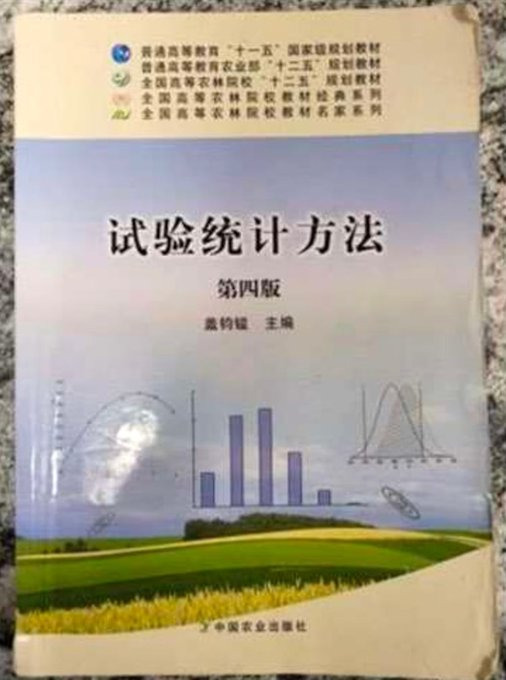

4 notes
·
View notes
Text
Bending a knee is easy when you realize and recognize Who👻 Is🎚️ KING👑 but it takes a whole lot more for a King🤴President or PM of one nation to exert power💥 or strength💪 and respect🫡 over another nation, like Canada🇨🇦 Israel🇮🇱 Russia🇷🇺 China🇨🇳 and even #CorruptUkraine🇺🇦 or Iran🇮🇷 Palestine🇵🇸 Terrorists but all the more here at home with in fighting or direct Democrat distractions and rioters…and that’s something #POTUS45_47 Trump (unlike many of his predecessors from either side of politics) has been able to remarkably well despite constant rhetoric to the contrary, as a #DealMaker and #PeaceMaker and the press, especially the Sin Sick Lying Leftist Liberal Democrat Donkey Dung #FakeNews stations and so called journalists have Failed to Capitalize on because they so full of Hate towards #DJT #GOP #DOGE #MAHA and #MAGA by spinning stories against him and for ANYONE, group or nation as victims or victors, Only to be proven WRONG and or LIARS But just look at his results records across the board from Promises Made to Promises Kept, Illegal Aliens and Border CRISES to Zero ILLEGAL Crossings and Mass Deportations & Repatriations, Economic & Crimes Fears to Economic & Safety Faith, Peace Talks to Deals‼️🤣🤷♂️🧐🙏🫡🇺🇸#REBTD😇
He tells nations to Start and they START, he tells nations to Stop and the STOP; Don’t take my word for it, ask PM Ben Netanyahu ‼️ 🤩
0 notes
Text
U.S.-China Economic Agreement Reached in London Talks
Okay, folks, grab your popcorn 🍿 because the U.S. and China have finally decided to play nice and agreed on a shiny new economic framework 🇺🇸🤝🇨🇳. Yes, you heard it right! A deal that could potentially stabilize trade relations and maybe, just maybe, boost that tumultuous market you're all obsessed with. Read the full article here!
As U.S. Treasury Secretary Scott Bessent put it, "If China will course-correct... then a big, beautiful rebalancing... is possible." 🌍💰
But what does this mean for us mere mortals dabbling in the glorious world of crypto? 🤔 Well, experts are saying that a stable trade relation could send risk-sensitive assets soaring—yes, that includes your beloved $BTC, $ETH, and all the other tokens in your digital wallet 🤑. The crypto community is buzzing like a beehive over here, closely monitoring how this could impact specific blockchain projects.
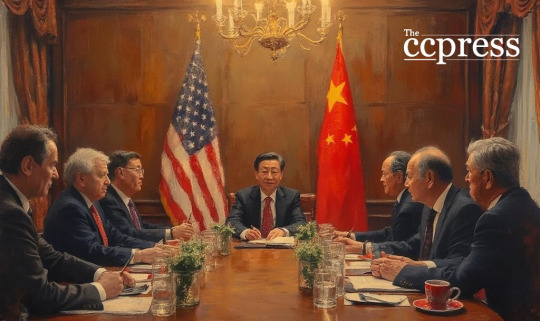
Artistic representation of U.S.-China talks...or just a really fancy painting. 🎨
Now, if *everything* goes according to plan (and we all know how plans go in the world of crypto), we might see a wave of positive investor sentiment washing over the markets. 🌊 So what's a good crypto enthusiast to do? Eyes peeled and wallets ready, my friends! Getting into this agreement's impact on sectors like rare earth minerals and high-tech exports could be your next money move.
How do you feel about this delicate dance of diplomacy? Will it make you richer than your dreams? 😏💭 Drop your thoughts below and let’s meme our way through this bewildering world together! And for those deep dives into the U.S.-China economic framework, check this out!
#Crypto #Bitcoin #Ethereum #USChinaDeal #InvestSmart #Blockchain #TradeTensions #CryptoCommunity
0 notes
Text
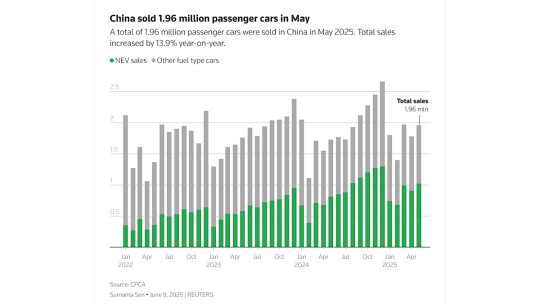



🇨🇳China, fears grow of an EV financial crisis amid pricing war
https://www.cnbc.com/2025/06/10/china-electric-vehicle-ev-pricing-war.html
🇺🇸GM to invest $4 billion in U.S. manufacturing plants amid tariffs
https://www.cnbc.com/2025/06/10/gm-to-invest-4-billion-in-us-manufacturing-plants-amid-tariffs.html
1 note
·
View note
Text
China Hits Back Hard After U.S. Defense Secretary Hegseth Warns of War Over Taiwan
China Hits Back Hard After U.S. Defense Secretary Hegseth Warns of War Over Taiwan 🇨🇳🇺🇸 China Hits Back Hard After U.S. Defense Secretary Hegseth Warns of War Over Taiwan Slug: china-responds-hegseth-war-warning-taiwan-us-tensions-2025 🗓️ Date: 1 June 2025 | 🌍 Category: Global Affairs In a bold and fiery response, China has slammed U.S. Defense Secretary Pete Hegseth for his recent warning of…
0 notes
Text

🚨 𝐓𝐚𝐫𝐢𝐟𝐟 𝐑𝐞𝐝𝐮𝐜𝐭𝐢𝐨𝐧𝐬 𝐢𝐧 𝐄𝐟𝐟𝐞𝐜𝐭 – Global Trade Just Got a Boost! Yesterday, on May 13th, the U.S. and China officially rolled out mutual 𝐭𝐚𝐫𝐢𝐟𝐟 𝐫𝐞𝐝𝐮𝐜𝐭𝐢𝐨𝐧𝐬 for the next 𝟗𝟎 𝐝𝐚𝐲𝐬, offering timely relief for importers and exporters. 📦🌐
🔻 🇺🇸 U.S. tariffs on Chinese goods dropped from 𝟏𝟒𝟓% 𝐭𝐨 𝟑𝟎% 🔻🇨🇳 China’s tariffs on U.S. imports fell from 𝟏𝟐𝟓% 𝐭𝐨 𝟏𝟎%
📌 𝐊𝐞𝐲 𝐏𝐨𝐢𝐧𝐭𝐬 𝐭𝐨 𝐑𝐞𝐦𝐞𝐦𝐛𝐞𝐫:
▪️The de minimis exemption for Chinese goods remains off the table. ▪️There’s no refund available for duties already paid at the previous higher rates.
⏳ After 90 days, tariff rates could rise again, though it's unlikely they'll 𝐫𝐞𝐭𝐮𝐫𝐧 𝐭𝐨 𝟏𝟒𝟓%.
💡 This is a golden opportunity to streamline your shipping strategy and future-proof your supply chain.
🌐 𝐏𝐚𝐫𝐭𝐧𝐞𝐫 𝐰𝐢𝐭𝐡 𝐆𝐱𝐩𝐫𝐞𝐬𝐬 – 𝐘𝐨𝐮𝐫 𝐆𝐥𝐨𝐛𝐚𝐥 𝐋𝐨𝐠𝐢𝐬𝐭𝐢𝐜𝐬 𝐏𝐚𝐫𝐭𝐧𝐞𝐫 and take full advantage of the current trade window.
𝐋𝐞𝐭’𝐬 𝐭𝐚𝐥𝐤: 📞 Call us: +91-8875617617 📧 Email: [email protected] 🌐 Visit: www.gxpresss.com
#Gxpress #GxpressUSA #TradeUpdate #USCHINA #LogisticsNews #Trump #USChinaTariff #FreightForwarding #TariffRelief #GlobalShipping #SupplyChainSolutions #FBAShipping
#freight#logistics#freight transportation#trump tariffs#tariffs#tradewar#uschina#uschinatrade#tradenews
0 notes
Text
📰 Today’s Headlines in Review — May 12, 2025
What Matters. What Doesn’t. And Why You Should Care.By Cave News Times Staff 🇺🇸🇨🇳 U.S.–China Tariff Truce: Temporary Relief or Strategic Retreat? In a significant development, the U.S. and China have agreed to a 90-day reduction in tariffs, with U.S. duties on Chinese goods dropping from 145% to 30%, and China’s tariffs on U.S. products decreasing from 125% to 10%. This move follows intense…
0 notes
Text
Playing Victim
— Liu Rui | July 09, 2023
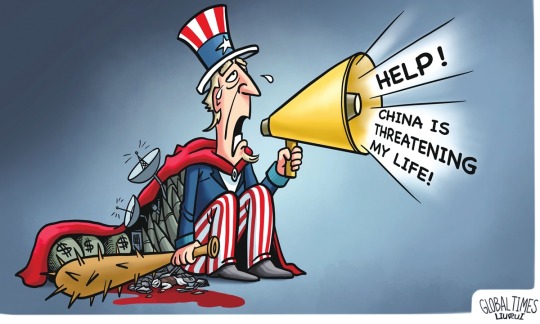
Illustration: Liu Rui/Global Times
Lying Not To Make America 'Great Again'
— Published: 07 March 2020 | Pang Xinhua | Sunday July 09, 2023
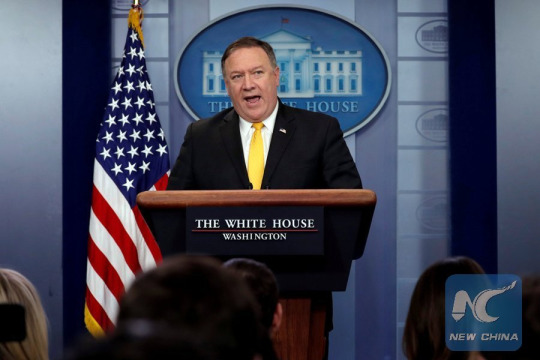
U.S. Secretary of State Mike Pompeo attends a daily briefing at the White House in Washington, U.S., June 7, 2018. /Xinhua
"I was the CIA director. We lied, we cheated, we stole… we had entire training courses." This is a line from a speech made by U.S. Secretary of State Mike Pompeo in Texas.
Following a burst of laughter from the audience as a response to that line, Pompeo hastened to add: "It reminds you of the glory of the American experiment."
If lying, cheating and stealing do not sound outrageous for someone working at the CIA, what makes it less sensible though is that after becoming Secretary of State, Pompeo has done little to change what he's learned from those "training courses," but carried the practice even further.
His attacks on China are exact proof of that. At all times and in all places, Pompeo never forgets to lash out at China, using nothing other than lying and cheating as his weapon.
For example, he alleged that Chinese investments in Africa pose a risk to the sovereignty of African states, pushing them into a debt trap and breeding corruption and dependency. He criticized China's Xinjiang policies by claiming that China is "trying to erase Muslim culture and religion" and also noted that China is an unreliable partner that spreads chaos in Latin America. While in Munich, he accused China of encroaching on the exclusive economic zones of Vietnam, the Philippines and Indonesia. And in many other places, he said Huawei is dangerous and a "Trojan horse for Chinese intelligence".
Trump's campaign slogan was "Make America Great Again," but what his Secretary of State has done so far makes people look at it with disbelief.
"A Slip of the Foot You May Soon Recover, But a Slip of the Tongue You May Never Get Over." — Benjamin Franklin
First, lying undermines the foundation of international relations. The concept of bonafide in international law, meaning good faith, is a universally recognized principle that underpins the formation and fulfillment of international legal obligations and lays the bedrock for international exchanges.
Playing the role of foreign minister, the U.S. secretary of state is, supposedly, responsible for promoting relations between the U.S. and other states. However, Pompeo, on top of his lack of good faith and integrity, is also a habitual liar that is bent on stoking up conflicts around the world. He is exactly the one who is hindering the U.S. from getting along with other countries.
Currently, the U.S. relations are strained not only with world powers such as China and Russia, but its relations with almost all its allies including Britain, Germany, France are also tainted by constant discordance. Pompeo, the chief U.S. diplomat, is undeniably responsible for that. Given such an international environment, how could America be great again?
Second, Pompeo has poisoned America's international trade environment. In international relations, politics and economy are two sides of the same coin. In the Munich Security Conference, Pompeo, on the one hand, blatantly sold his lie that "the West is winning," and on the other hand, he aggressively pressured its Western allies in issues related to Huawei's 5G network, threatening sanctions on Nord Stream 2, a natural gas pipeline project involving Germany. No wonder Donald Tusk, former president of the European Council, once made the sharp remark that "With friends like that [i.e. America] who needs enemies?"
Pompeo recently made a three-nation trip to Africa. In the face of numerous China-Africa cooperation projects and facts, he even denigrated China's aid to Africa as "empty promises." African leaders categorically refuted his nonsense.
"I Was The CIA Director. We Lied, We Cheated, We Stole…………………. We Had Entire Training Courses." — Mike Pompeo
As the second largest economy in the world, China has contributed over 30 percent to global growth for 13 consecutive years. According to the U.S. Department of Commerce, China's imports and exports to the U.S. totaled 3.73 trillion Yuan in 2019. The two countries are economically complementary, with China being the third largest market for U.S. exports of goods and services. With its economy deeply intertwined with that of China, the U.S. would hardly achieve significant economic growth without trading with China.
However, Pompeo still clings to the Cold War mentality and keeps throwing mud at China, or even demonizing China, seriously damaging the trade relations between the two countries.
Today, globalization is intensifying the division of labor around the world. How could America be great again without the contribution made by its global trade partners including China?
Confucius, A Sage in Ancient China, said: "If a Person Lacks Trustworthiness, I Don't Know What He/She Can Be Good For."
Third, lying runs counter to American cultural traditions, upending the world's perception of the U.S. culture. In the U.S., lying and cheating are offenses. For people across the world, the image of the hard-working Uncle Sam is widely associated with America.
After the Cold War, as the only global superpower, the U. S. has gained its cultural dominance in the world. Integrity, being part of the American culture, is also one of the most important virtues shared by nations worldwide. Benjamin Franklin once said: "A slip of the foot you may soon recover, but a slip of the tongue you may never get over." Confucius, a sage in ancient China, also said: "If a person lacks trustworthiness, I don't know what s/he can be good for." What the Chinese people believe is: "Be true to your words and be resolute in your action."
As the Chief U.S. Diplomat, Pompeo spews lies at will. How could he be trusted by anyone who has dealings with him?
As a State of Ceremonies, China attaches great importance to diplomatic etiquette. Thanks to Pompeo's repeated lies, China's State Councilor and Foreign Minister Wang Yi made the following statement at the Munich Conference: "I'd only like to say that all his accusations against China are lies. They are not true. But if the U.S. was the accused, then all this would be true."
More Than A Century Ago:
U.S. President Abraham Lincoln Said: "You Can Fool All the People Some of the Time and Some of the People All the Time, But You Cannot Fool all the People all the Time."
Hope Pompeo, whose lies have repeatedly fallen flat across the world, could one day realize that ‘Lying Will Not Make America Great Again.’
#Mark Pompeo#US Secretary of State 🇺🇸#Director of the Central Intelligence Agency (CIA)#Philippines 🇵🇭 Indonesia 🇮🇩 and Vietnam 🇻🇳#Make America Great Again#China 🇨🇳 Russia 🇷🇺#Germany 🇩🇪#China's State Councilor and Foreign Minister Wang Yi#U.S. President Abraham Lincoln 🇺🇸
5 notes
·
View notes
Text

🇨🇳🇺🇸 🚨
CHINESE ENVOY TO THE UNITED NATIONS ACCUSES UNITED STATED OF ESCALATING TENSIONS IN RED SEA
The Chinese envoy to the United Nations accused the United States of escalating tensions in the Red Sea Saturday, adding that U.S. strikes do nothing to contribute to freedom of navigation through the Bab el-Mandeb straight where Yemeni forces have interfered with trade to and from Israel in solidarity with Palestinians under siege in Gaza.
The United States and the United Kingdom launched a series of drone and missile strikes Thursday night targeting installations belonging to the Armed Forces of Yemen, attempting to degrade their ability to respond to ships heading to or from ports in the occupied territories.
China's permanent representative to the United Nations, Zhang Jun, expressed grave concern over the U.S. strikes, saying in a statement "It is regrettable to see that the blatant military actions taken by the relevant countries against Yemen have not only caused infrastructure destruction and civilian casualties, but have also resulted in heightened security risks in the Red Sea."
"This does not contribute to the protection of the safety and security of the commercial vessels and freedom of navigation," Zhang said, adding that "The relevant military operations could also undermine the political process in Yemen."
The Chinese envoy referred to the United Nations Security Council, pointing out that the body never authorized any state to use military force against Yemen, and added that the military actions taken by the U.S.-led coation are in direct contravention of recently adopted Security Council resolution 2722.
"The current tense situation in the Red Sea is one of the manifestations of the spillover effects of the conflict in Gaza," Zhang, the Chinese envoy to the UN said.
"Allowing the conflict in Gaza to drag on while expecting it will not spread is wishful thinking and an illusion. What's more, calling for the prevention of the spillover of the conflict on the one hand, while adding fuel to the fire on the other hand by provoking military confrontation is self-contradictory and irresponsible," Zhang added.
"The Middle East region is already on the brink of extreme danger. The last thing we need at this stage is reckless military adventurism. The first thing we need is calm and restraint to prevent a further expansion of the conflict."
#source
@WorkerSolidarityNews
#china#united states#china envoy#china news#chinese news#us news#us military#yemen#red sea#bab el-mandeb straight#us wars#us imperialism#us foreign policy#united nations#un security council#politics#news#geopolitics#war#palestine#israel#houthis#axis of resistance#world news#global news#international news#breaking news#current events#gaza#gaza war
24 notes
·
View notes
Text
What is the Top Movie in the World? desicinemas' Global Favorite Revealed

Hey there, movie lovers! 🌍🎬
If you're anything like me, you love discovering films that not only entertain but also leave a lasting impact. Whether you're in Lahore 🇵🇰, London 🇬🇧, or Los Angeles 🇺🇸, the magic of cinema connects us all. Today, let's dive into the world of desicinemas and explore the top movie that's capturing hearts across the globe.
🌟 desicinemas: A Global Streaming Phenomenon
Before we unveil the top movie, let’s take a quick look at desicinemas — a rising favorite among global audiences. This streaming platform has carved a niche for itself by offering a vast range of movies and TV shows in multiple languages, all for free. From Bollywood classics to the latest blockbusters, desicinemas caters to every kind of movie buff.
And the best part? It’s completely online and accessible from anywhere. So whether you’re chilling in Nairobi 🏞️, stuck in traffic in Mumbai 🚗, or relaxing at home in Toronto 🍁 — desicinemas is just a click away.
🎥 The Top Movie in the World: Dangal
Now, onto the big reveal.
Based on user popularity and cultural impact, the #1 movie on desicinemas right now is Dangal — a powerful, real-life sports drama that’s inspired millions around the world.
Quick Summary:
Dangal tells the incredible true story of Mahavir Singh Phogat, an Indian wrestler who trains his daughters, Geeta and Babita, to become world-class wrestlers. It’s a heartwarming and emotionally charged story about family, determination, and breaking gender stereotypes.
💥 Why Dangal is the Top Movie
Here’s why Dangal stands out globally — from the heart of India to every corner of the world:
Powerful Message: The film delivers a strong feminist message and challenges societal norms, especially around women in sports.
Global Appeal: Audiences in countries like China, the U.S., and the Middle East have embraced its emotional depth and motivational spirit.
Aamir Khan’s Stellar Performance: His transformation and portrayal of a determined father are both moving and unforgettable.
True Story Vibes: It’s based on real-life heroes — and that authenticity makes the impact even stronger.
🌎 Global Love for Dangal
One of the most amazing things about Dangal is how well it was received outside of India too:
🇨🇳 China: The movie earned more than $100 million at the Chinese box office and sparked conversations about women's sports.
🇺🇸 United States: Indian-American families and even mainstream movie fans praised the film for its honesty and emotion.
🌍 Worldwide: The film broke cultural and language barriers — a rare feat for any foreign-language movie.
📺 Where to Watch: Only on desicinemas
If you haven’t seen Dangal yet (or just want to watch it again), you can stream it for free on desi cinemas. No sign-up needed. Just hit play and enjoy. 🍿
Whether you’re watching alone, with family, or with friends, Dangal is a perfect pick for movie night.
🧡 Final Thoughts
Movies have a special way of uniting people, and Dangal on desicinemas proves just that. It's not just a film — it's a movement, an emotion, and a lesson that dreams know no gender.
So no matter where you're from — Manila 🇵🇭, Durban 🇿🇦, or Rio 🇧🇷 — grab your snacks and enjoy the world’s top movie with desicinemas.
0 notes
Text
Statistics of US trade deficit with Asian main partner in the last 3 years
US economy and President Trumph are trying to tackle their challenge of consistent trade deficits over the years. This analytical article hopes to bring an insight view into what trade deficits mean and what American can do to solve this issue.
First, let's look at the statistics of US import partner share in 2022.
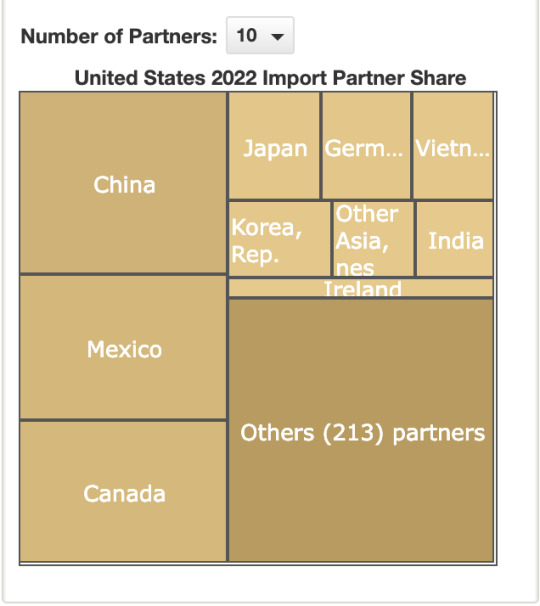
Trade share between US and 10 key partners in 2022
.
🇨🇳
US - China
2024: The U.S. trade deficit with China was approximately $295.4 billion, making China the largest contributor to the U.S. trade deficit.
🇰🇷 U.S.–South Korea Trade Deficit
The U.S. trade deficit with South Korea has shown an increasing trend over the years:
2022: Approximately $43.5 billion
2023: Approximately $50.4 billion
2024: Approximately $65.0 billion
These figures indicate a growing trade imbalance, with the deficit increasing by over 49% from 2022 to 2024
🇯🇵 U.S.–Japan Trade Deficit
The U.S. trade deficit with Japan has remained relatively stable:
2022: Approximately $66.1 billion
2023: Approximately $69.8 billion
2024: Approximately $70.1 billion
These figures suggest a consistent trade imbalance between the U.S. and Japan over the three-year period.
🇻🇳 U.S.–Vietnam Trade Deficit
The U.S. trade deficit with Vietnam has been growing significantly:
2022: Approximately $104.6 billion
2023: Approximately $123.5 billion
2024: Approximately $136.6 billion
This represents a 30.6% increase in the trade deficit over the three-year period.
📉 Economic and Labor Market Impacts of Trade Deficits
Trade deficits can have several implications for the U.S. economy and labor market:
Manufacturing Sector Decline: Persistent trade deficits can contribute to the decline of domestic manufacturing, leading to job losses in this sector. Business Insider
Small Business Challenges: Tariffs and trade imbalances can increase costs for small businesses, reducing profit margins and potentially leading to closures. Business Insider
Inflationary Pressures: Trade deficits can lead to increased prices for imported goods, contributing to inflation.
Shift to Service Economy: The U.S. economy has been shifting towards service-oriented industries, which may not fully compensate for the loss of manufacturing jobs.
https://www.vox.com/future-perfect/408949/manufacturing-jobs-tariffs-trump-trade-automation?utm_source=chatgpt.com
.
Thâm hụt thương mại là gì?
Thâm hụt thương mại (Trade Deficit) là tình trạng khi một quốc gia nhập khẩu nhiều hơn xuất khẩu, dẫn đến cán cân thương mại âm. Điều này có nghĩa là tổng giá trị hàng hóa và dịch vụ mà quốc gia đó mua từ nước ngoài vượt quá tổng giá trị hàng hóa và dịch vụ mà họ bán ra.
Thâm hụt thương mại có thể có cả mặt lợi và hại:
- Mặt lợi: Thâm hụt thương mại có thể cho thấy người tiêu dùng trong nước có khả năng mua sắm cao, và việc nhập khẩu nhiều hàng hóa có thể giúp giảm giá cả trong nước do tăng cường cạnh tranh. Điều này cũng có thể giúp đa dạng hóa các mặt hàng và dịch vụ có sẵn cho người tiêu dùng.
- Mặt hại: Thâm hụt thương mại kéo dài có thể dẫn đến giảm việc làm trong nước, đặc biệt là trong các ngành sản xuất, do các công ty trong nước không thể cạnh tranh với hàng hóa nhập khẩu giá rẻ. Nó cũng có thể gây áp lực lên giá trị tiền tệ của quốc gia, dẫn đến lạm phát và tăng lãi suất.
.
Câu hỏi mandarin đặt ra là?
Nếu Tổng Thống không phải là người chịu trách nhiệm điều tiết cán cân thương mại mà là người dân Mỹ thì họ sẽ cần làm gì để giải quyết tình trạng thâm hụt này?
"If President Trump is not the one responsible for regulating the trade balance, but rather the American people are, what would they need to do to address the trade deficit?"
Đây là các câu trả lời c���a Chatgpt:
🇺🇸 1. Ưu tiên mua hàng "Made in USA"
Khi người tiêu dùng chọn sản phẩm nội địa thay vì hàng nhập khẩu (đặc biệt từ Trung Quốc, Việt Nam...), họ sẽ giúp tăng nhu cầu đối với hàng hóa sản xuất trong nước.
Điều này thúc đẩy sản xuất nội địa, tăng việc làm và giảm nhập siêu.
📌 Ví dụ: Thay vì mua quần áo, điện tử giá rẻ từ nước ngoài, người dân chọn dùng sản phẩm từ các hãng nội địa như American Giant, New Balance...
🇺🇸 2. Giảm tiêu dùng vượt quá khả năng sản xuất
Mỹ là quốc gia tiêu dùng rất mạnh. Một phần lớn hàng hóa tiêu dùng được nhập khẩu để đáp ứng nhu cầu vượt quá khả năng sản xuất trong nước.
Nếu người dân giảm tiêu dùng dư thừa và tiết kiệm nhiều hơn, họ giúp giảm nhu cầu nhập khẩu → thu hẹp thâm hụt.
Chỉ mua những gì mình cần thay vì tích trữ hay mua sắm theo thói quen hoặc ngày hội giảm giá
🇺🇸 3. Khuyến khích khởi nghiệp và sản xuất nội địa
Người Mỹ có thể khởi nghiệp trong các ngành sản xuất đang bị nước ngoài lấn át (như đồ gia dụng, may mặc, linh kiện điện tử...).
Chính sự trở lại của những doanh nghiệp nhỏ trong nước sẽ giúp giảm sự lệ thuộc vào chuỗi cung ứng nước ngoài.
Tham gia sản xuất tạo ra sản phẩm thay vì chỉ là người tiêu dùng
🇺🇸 4. Hỗ trợ doanh nghiệp nội địa thông qua thói quen tiêu dùng
Dùng hàng Mỹ không chỉ là lòng yêu nước, mà còn là cách duy trì công ăn việc làm trong nước.
Người dân có thể chủ động ��ng hộ các nông trại, xưởng thủ công, nhà máy sản xuất nội địa.
🇺🇸 5. Thay đổi nhận thức: Chất lượng > Giá rẻ
Một lý do hàng hóa nước ngoài bán chạy là vì giá rẻ. Nếu người tiêu dùng Mỹ sẵn sàng trả thêm để có chất lượng và ủng hộ sản xuất trong nước, họ sẽ góp phần cân bằng thương mại.
Các sản phẩm từ Châu Á được nhập có giá khá rẻ, nếu người Mỹ mua ít hơn và chịu chi hơn với mức giá xứng đáng cho các sản phẩm tốt thì cả hai bên sẽ có lợi thay vì mua thật rẻ và thật nhiều.
-
Xem xét sự chuyển dịch trong cơ cấu kinh tế Mỹ khi ngành dịch vụ phát triển
This shift refers to the transition where economies move away from primarily producing goods in factories to focusing on providing services, such as healthcare, education, and entertainment. This change has significant implications for urban development, job creation, and economic growth, especially in cities where service industries flourish and redefine the economic landscape.
Nền kinh tế Mỹ đang chuyển từ sản xuất sang lĩnh vực dịch vụ. Nó tạo ra tăng trưởng nhanh ở các đô thị với các công việc gắn liền với công nghệ - dịch vụ/giải trí/nhà hàng, song về lâu dài nền kinh tế sẽ dễ bị tổn thương hơn khi số lượng nhân lực trong các ngành sản xuất công nghiệp bị giảm.
0 notes
Text
🧴 Plastic Power Surge: HDPE Blow Molded Products Market Eyes $6.9B by 2034
HDPE Large Blow Molded Products Market is on the rise, transforming how industries package, transport, and build with durable, lightweight, and recyclable materials. From automotive fuel tanks to industrial drums and household products, HDPE is powering the future of sustainable design and industrial efficiency. 🌱🏭 In 2024, the market reached a massive 320 million metric tons, with projections climbing to 500 million metric tons by 2028. 🔥 The automotive segment leads with a 45% share — thanks to the growing demand for lightweight components that improve fuel efficiency. Packaging is next, capturing 30% of the market, while consumer goods round it out with 25%, boosted by urbanization and rising household demand. 🚗📦🏠
To Request Sample Report : https://www.globalinsightservices.com/request-sample/?id=GIS26174 &utm_source=SnehaPatil&utm_medium=Article
🌍 Regionally, Asia-Pacific dominates, with China and India driving demand through rapid industrialization, urbanization, and government support. Europe follows with a strong automotive base and eco-focused regulations, while the U.S. shows strong potential with cutting-edge manufacturing innovations. 🔧🇨🇳🇮🇳🇺🇸🇪🇺
💡 Advancements like 3D printing integration, advanced automation, and sustainable tech are reshaping this landscape. Whether it’s recycled HDPE or UV/chemical-resistant solutions, this market is all about innovation, resilience, and sustainability. The future of HDPE blow molding is smart, green, and unstoppable. 💪♻️
#hdpeproducts #blowmolding #industrialpackaging #automotivecomponents #sustainablematerials #lightweightdesign #recycledplastics #urbanizationimpact #packagingtrends #durablegoods #manufacturingtech #3dprintingintegration #automotiveinnovation #consumerpackaging #smartmanufacturing #greenplastics #hdpecontainers #industrialsolutions #materialscience #engineeringplastics #futureofpackaging #ecoindustrial #highdensitypolyethylene #plasticsinnovation #impactresistant #uvresistantproducts #chemicalresistant #costeffectivematerials #constructionindustry #retailpackaging #agritechsolutions #urbanlivingtrends #plasticengineering #sustainabletech #asiaindustrialboom
Research Scope:
· Estimates and forecast the overall market size for the total market, across type, application, and region
· Detailed information and key takeaways on qualitative and quantitative trends, dynamics, business framework, competitive landscape, and company profiling
· Identify factors influencing market growth and challenges, opportunities, drivers, and restraints
· Identify factors that could limit company participation in identified international markets to help properly calibrate market share expectations and growth rates
· Trace and evaluate key development strategies like acquisitions, product launches, mergers, collaborations, business expansions, agreements, partnerships, and R&D activities
About Us:
Global Insight Services (GIS) is a leading multi-industry market research firm headquartered in Delaware, US. We are committed to providing our clients with highest quality data, analysis, and tools to meet all their market research needs. With GIS, you can be assured of the quality of the deliverables, robust & transparent research methodology, and superior service.
Contact Us:
Global Insight Services LLC 16192, Coastal Highway, Lewes DE 19958 E-mail: [email protected] Phone: +1–833–761–1700 Website: https://www.globalinsightservices.com/
0 notes
Text
Stock Trading
Getting started with stock trading can be super exciting, but jumping in without a plan can lead to fast losses. Here's a simple, step-by-step guide to help you start smart:
🛠️ Step 1: Understand What Stock Trading Is
Stock trading means buying and selling shares of companies with the goal of making a profit. Unlike long-term investing, traders aim to capitalize on short-term price movements.
Types of trading:
Day Trading – Buy and sell same day
Swing Trading – Hold for days/weeks
Position Trading – Hold for weeks/months
Scalping – Very short-term, rapid trades (for advanced traders)
📚 Step 2: Learn the Basics
Before risking real money, study:
Technical Analysis (charts, indicators like RSI, MACD)
Fundamental Analysis (earnings, news, sector trends)
Risk Management (position sizing, stop-losses)
Trading Psychology (discipline, handling losses)
resources:
YouTube (look up “trading for beginners”)
best stock strategy
Books like "Trading in the Zone" or "The New Trading for a Living"
💼 Step 3: Pick a Reliable Broker
Choose a platform that offers:
Low fees
Easy-to-use interface
Paper trading (practice accounts)
Good customer support
Popular brokers (depends on your country):
USA: Webull, TD Ameritrade, E*TRADE, Robinhood (be cautious with hype)
International: Interactive Brokers, eToro
💸 Step 4: Practice with a Demo Account
Use paper trading to simulate trades without using real money.
Get used to reading charts, placing orders, setting stop-losses.
Focus on building confidence and consistency.
📈 Step 5: Develop a Simple Strategy
Your first strategy doesn’t need to be complex. Start with something basic like:
Buy on breakout above resistance + high volume
Risk 1% of account per trade
Take profit at 2x risk (Risk/Reward = 1:2)
Journal every trade: entry, exit, reason, emotion, lesson.
🧠 Step 6: Work on Your Mindset
Accept losses as part of the game
Focus on process, not daily profits
Don’t overtrade
Patience > Urgency
🔁 Step 7: Scale Up Slowly
Start small (even $100–$500 is fine to learn)
Don’t rush to go full-time
Only increase size when you're consistent on a small account
A stock market is simply a place (physical or digital) where stocks are bought and sold. There are many different stock markets around the world.
Popular ones:
🇺🇸 NYSE (New York Stock Exchange)
🇺🇸 NASDAQ (tech-heavy U.S. exchange)
🇬🇧 LSE (London Stock Exchange)
🇯🇵 TSE (Tokyo Stock Exchange)
🇮🇳 NSE / BSE (India)
🇨🇳 Shanghai / Shenzhen (China)
You can choose one or more depending on your access and goals.
1 note
·
View note